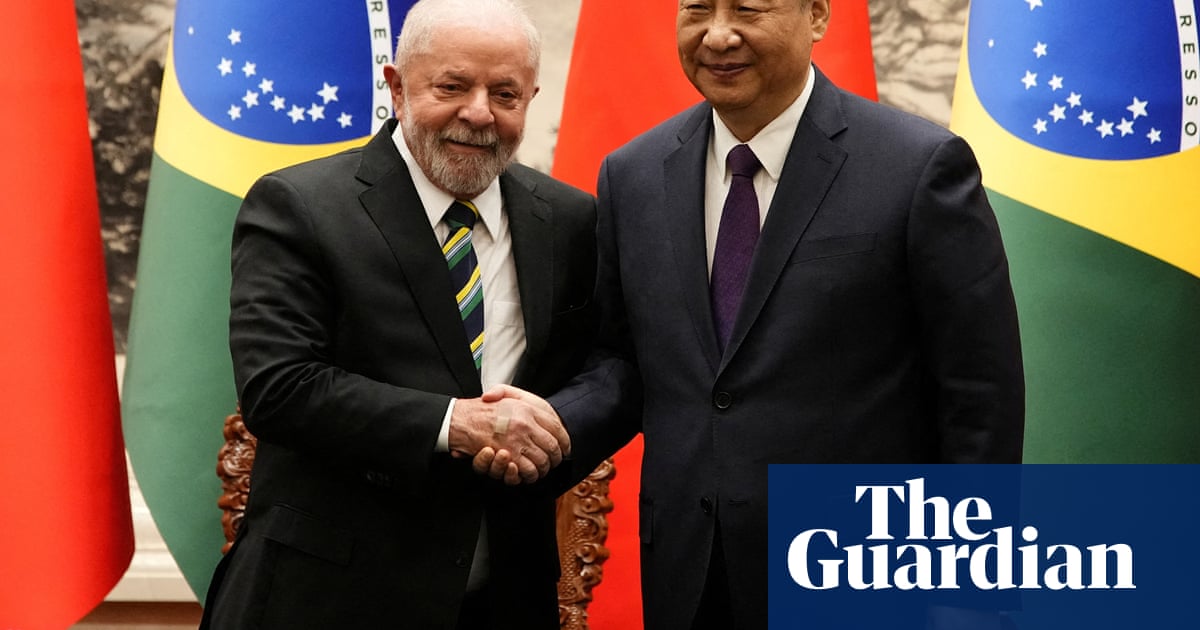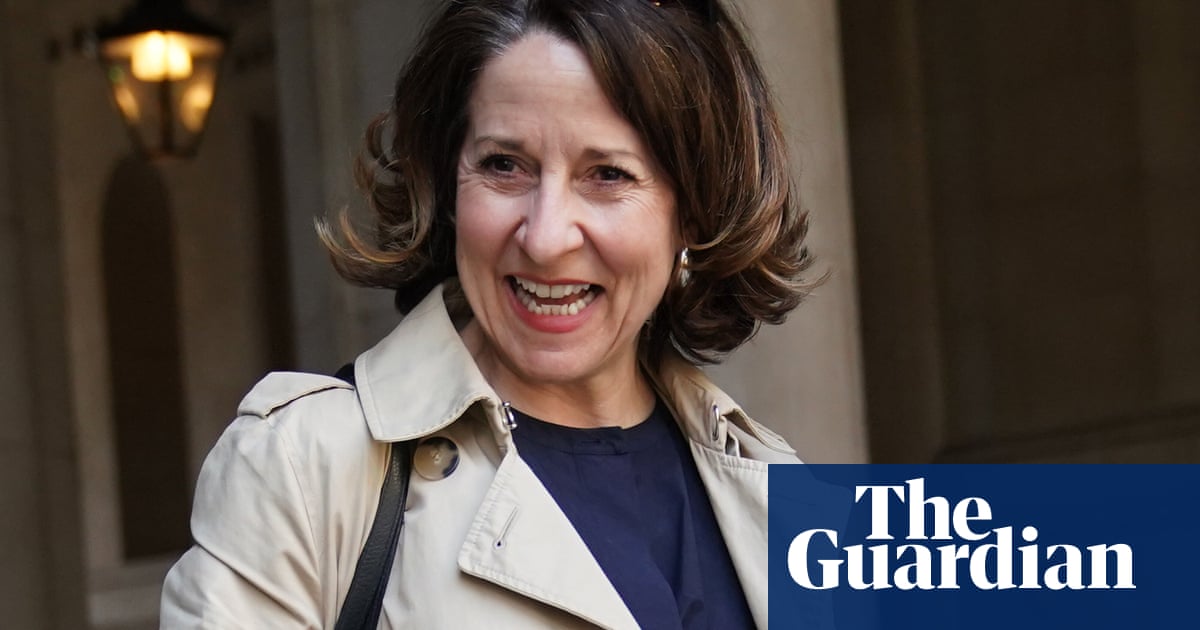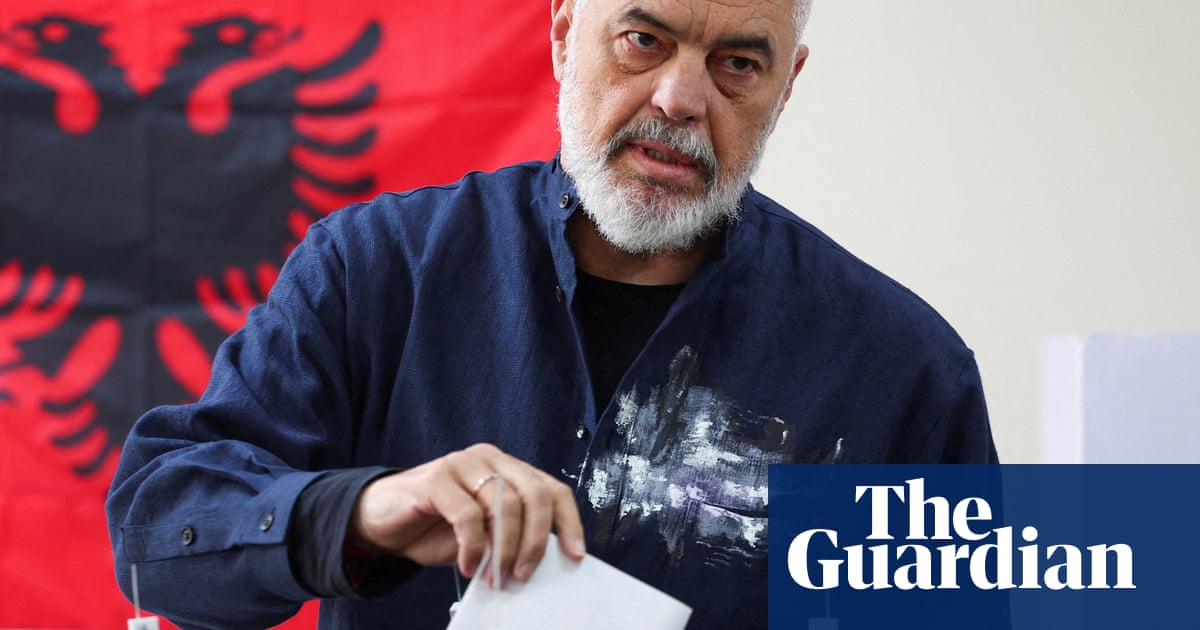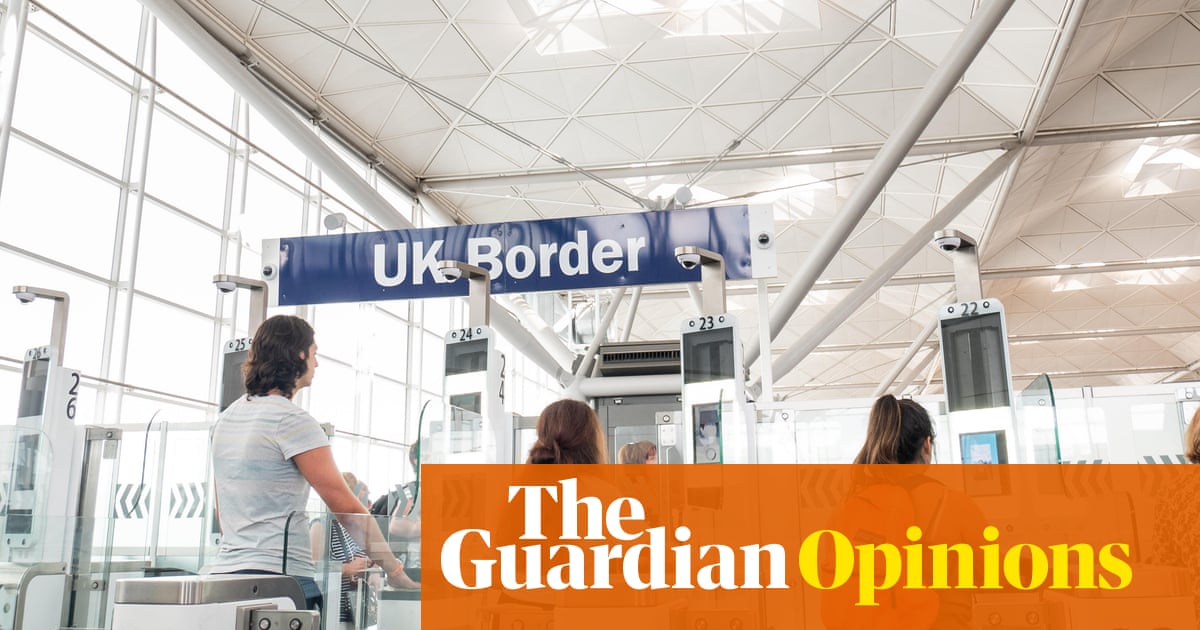Keir Starmer has defended his plans to curb net migration after an angry backlash from MPs, businesses and industry to a speech in which he said the UK risked becoming an “island of strangers” without tough new policies.
The rhetoric was likened by some critics to the language of Enoch Powell, and the prime minister was accused of pandering to the populist right by insisting he intended to “take back control of our borders” and end a “squalid chapter” of rising inward migration.
Some politicians claimed that his words had echoed Powell’s notorious “rivers of blood” speech, which imagined a future multicultural Britain where the white population “found themselves made strangers in their own country”.
When asked to respond to accusations he had adopted Powell’s rhetoric, Starmer told the Guardian: “Migrants make a massive contribution to the UK, and I would never denigrate that.”
But in words that could further enrage his critics, Starmer insisted that new migrants must “learn the language and integrate” once in the UK. He said: “Britain is an inclusive and tolerant country, but the public expect that people who come here should be expected to learn the language and integrate.”
Starmer came under fire after delivering a speech on Monday morning that outlined his new language tests for migrants and a crackdown on visas.
At a press conference in Downing Street, Starmer said: “Let me put it this way, nations depend on rules, fair rules. Sometimes they are written down, often they are not, but either way, they give shape to our values, guide us towards our rights, of course, but also our responsibilities, the obligations we owe to each other.
“In a diverse nation like ours … we risk becoming an island of strangers, not a nation that walks forward together.”
Zarah Sultana wrote that Starmer had “imitated” Powell’s speech, which subsequently became a rallying cry for racists and the hard right in the UK.
The independent MP for Coventry South wrote on X: “That speech fuelled decades of racism and division. Echoing it today is a disgrace. It adds to anti-migrant rhetoric that puts lives at risk. Shame on you, Keir Starmer.”
Zack Polanski, who is running to be the next Green party leader, suggested that Starmer was deliberately echoing Powell’s phraseology. In a post on Bluesky, above quotes from both speeches, Polanski wrote: “Not even subtle.”
Several Labour MPs questioned whether Starmer’s policies were fuelling racism. Sarah Owen, the Labour chair of the women and equalities committee, who is of Malaysian-Chinese heritage, said: “Chasing the tail of the right risks taking our country down a very dark path.
“The best way to avoid becoming an ‘island of strangers’ is investing in communities to thrive – not pitting people against each other.”
Nadia Whittome said anti-migrant rhetoric from the government was “shameful and dangerous”. The Labour MP for Nottingham East said: “To suggest that Britain risks becoming ‘an island of strangers’ because of immigration mimics the scaremongering of the far-right.”
Bell Ribeiro-Addy, the Labour MP for Clapham and Brixton Hill, appeared to endorse the message by reposting Whittome’s statement on X.
Starmer was speaking before the publication of a 69-page immigration white paper that sets out details of how the government intends to introduce restrictions across all forms of visas to the UK.
after newsletter promotion
A new Home Office assessment showing the impact of changes to study and work visas and the introduction of English language tests said there would be about 100,000 fewer people entering the UK. It suggests net migration could fall to 300,000 by 2029, but the government declined to confirm a target.
Net migration, the difference between the number of people moving to the UK and the number leaving, was 728,000 in the 12 months to June 2024. Under the previous Conservative government, the figure rose to more than 900,000.
Starmer said that the current immigration system “encourages some businesses to bring in lower-paid workers rather than invest in our young people”.
Rain Newton-Smith, the Confederation of British Industry’s chief executive, said: “The reality for businesses is that it is more expensive and difficult to fill a vacancy with immigration than if they could hire locally or train workers … When considered alongside the large fees and accompanying charges, foreign workers are simply not the ‘easy’ or ‘cheap’ alternative.”
Critics have claimed that the changes are part of Starmer’s attempts to combat the rise of Nigel Farage’s Reform UK party, which made significant gains in this month’s local elections.
They include plans to raise foreign workers’ skills requirements to degree level, raise the standards of English language required for all types of visa including dependents, and increase the time it takes to gain citizenship from five years to as many as 10.
Migrants who demonstrate a “contribution” to the economy and society through their tax returns, who work for the NHS and other public services, who have engineering jobs or who do outstanding voluntary service will be entitled to fast-track their permanent residency.
Starmer said: “Our strategy is about delivering where the previous government failed year after year. It’s about rolling up our sleeves and fixing the broken immigration system to bring control to our borders, ending the open border experiment under the last government.
“The immigration white paper gets on with the job that we were elected to deliver: lowering net migration, delivering higher skills, backing British workers and the start of repairing the public’s trust that was so damaged by the last government.”

.png) 4 hours ago
4
4 hours ago
4













































